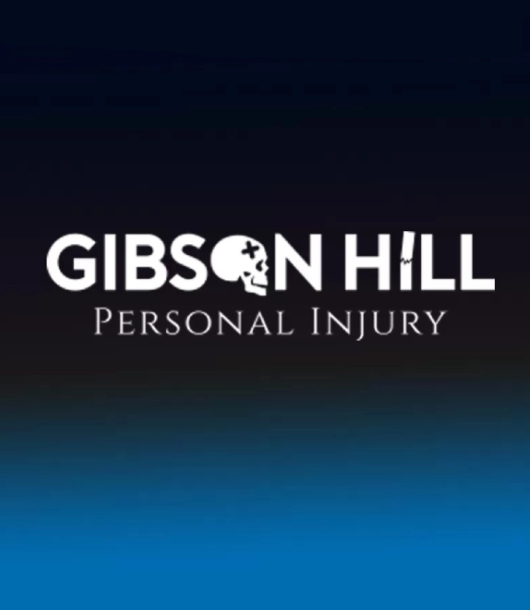Truck Driver Fatigue Accident Attorney in Houston
There’s nothing wrong with feeling a bit sleepy after hours on the road, right? That’s what some people think. But if you’ve been injured by a fatigued truck driver, you know better.
When someone is tired but drives their commercial vehicle anyway, it puts everyone around them at risk of injury. If you’ve suffered injuries in an accident caused by a truck driver’s fatigue, the driver and their insurance company may owe you financial compensation. Contact Gibson Hill Personal Injury to find out how to get it.
The trucking industry is a high-pressure world. Drivers are put on tight schedules and pressured to complete their runs as quickly as possible. If a tired driver causes a crash, both they and their employer may be held liable for the injuries they cause.
Our Houston fatigued truck driver accident lawyers can help you get the compensation you need. If you or a loved one were the victim of a fatigued truck driver crash, call a Houston personal injury attorney from Gibson Hill Personal Injury at (713) 659-4000 to schedule a free consultation about your case.
Why Fatigued Drivers Are Dangerous
Many motorists on Houston’s roadways feel tired. They can’t stop commuting just because they’re tired. Unfortunately, a lack of sleep also prevents truckers from operating their vehicles safely.
Commercial trucks are long, heavy, and carrying cargo. Those factors can cause severe damage to people and other cars when they hit them. Fatigued drivers are more likely to cross the center line and hit another vehicle head-on than alert ones. They also have slower reaction times.
Behaviors fatigued truck drivers are more susceptible to behind the wheel include:
- Speeding
- Failing to obey traffic signs and signals
- Reacting slowly
- Merging towards the shoulder or another vehicle
- Crossing the centerline
- Missing an exit
- Tailgating
- Running a stop sign or red light
- Trouble keeping eyes open
- Falling asleep at the wheel
- Failing to check blind spots
Hours of Service Regulations
The Federal Motor Carrier Safety Administration regulates the trucking industry. It limits the hours truck drivers can spend on the road. Drivers must take frequent rest breaks and spend a specific period off between shifts.
The federal hours of service rules include the following limits:
- No more than fourteen consecutive hours on duty after spending ten hours off duty
- A maximum of eleven hours spent driving during a fourteen-hour shift
- No more than 60 hours on duty during seven consecutive days or a maximum of 70 hours on duty during eight consecutive days
State and federal laws also require truckers and trucking companies to do the following:
- Keep repair and maintenance schedules
- Keep accurate driver logs
- Stop at weigh stations
- Maintain safe vehicle operation
- Report accidents
- Hire drivers with proper qualifications and licenses
- Carry minimum liability insurance
Texas Fault and Negligence Rules
Texas follows a traditional fault system when for car and truck accidents. If you get hurt in a crash that a fatigued truck driver caused, the driver exhibited a form of negligence. They’ll automatically become financially responsible for your injuries and expenses.
All vehicle operators must carry auto insurance with minimum limits of liability. For regular drivers, the minimum limit is $30,000.
Since commercial vehicles tend to cause more damage, the minimum required liability limit is $300,000 for trucks under 10,001 pounds. Trucks above 10,001 pounds must have liability insurance of at least $750,000. If they carry hazardous materials, the minimum amount of coverage is $5 million.
The modified comparative negligence rule can also affect Texas crash victims. If you share some responsibility for your truck accident, your damages may be reduced by the percentage of blame you share.
If you incurred a total of $100,000 in damages, you could be awarded that amount if the trucker is 100% at fault. But if you’re found 20% at fault for the truck accident, you would be entitled to a maximum of $80,000 in financial compensation.
Damages Available After a Truck Accident in Houston
All personal injury cases involve something known as damages. They’re the losses a victim experiences after an accident. If you were hurt in a truck accident due to a fatigued driver, your damages would include your medical treatment and the other crash-related expenses.
Your lawyer can help you demand compensation for the following damages:
- Past and future lost wages
- Past medical bills
- Estimated future medical costs
- Disability
- Pain and suffering
- Emotional distress
- Vehicle repairs
The insurance company will review your damages and consider some factors when they decide how much money they want to pay. Some of those factors include the following:
- Type of injury sustained and its severity
- Length of medical treatment required to recover or reach maximum medical improvement
- Total lost wages resulting from the inability to complete job-related duties
- Car repair estimates
- Effect of the injury on relationships with family and friends
- Impact on daily lifestyle
- Ongoing pain or mental trauma experienced after the truck accident
- Liability insurance coverage listed on the policy
- Availability of sufficient evidence proving the fatigued driver caused the crash
Your Gibson Hill Personal Injury lawyer won’t let you settle for less than you deserve.
Driving while fatigued is a form of negligence. If you believe you deserve additional compensation for your damages, your lawyer may advise you to file a lawsuit against the at-fault truck driver. In situations where the defendant’s actions were malicious, fraudulent, egregious, grossly negligent, or lacked regard for another person’s safety, you can seek punitive damages.
Punitive damages don’t compensate injured victims for their suffering and expenses. Instead, they punish the negligent party for their actions. They also aim to deter them from exhibiting similar behavior in the future.
To prove truck driver negligence, your lawyer must show the following elements existed:
- The truck driver owed you a duty of care to reasonably prevent injury;
- They breached their duty;
- They should have foreseen the risks of driving while fatigued and if it wasn’t for their actions, you wouldn’t have sustained an injury;
- Your injury was the direct result of the truck driver’s fatigue; and
- You suffered damages from the accident.
How a Lawyer Can Maximize the Value of Your Case
At Gibson Hill Personal Injury, we have the resources necessary to hold negligent parties responsible for their actions. We’ll thoroughly investigate your crash to document just who was at fault and how.
Our experience allows us to locate crucial evidence and build a strong case against liable truck drivers. Some of the evidence we’ll obtain includes:
- The traffic crash report
- Eyewitness statements
- Accident scene photos
- Video surveillance
- Records of damage to all vehicles involved
- Copies of liability insurance policies
- Your medical records and billing statements
- Evidence of the truck driver’s fatigue
- Trucking company employment logs
After completing our investigation, we’ll file an insurance claim on your behalf and submit all the evidence we found. We’re aggressive when we negotiate with insurance companies.
We’ll fight to get you the maximum settlement available. If we’re unable to reach an agreement, we can file a lawsuit and take the insurance company and at-fault truck driver to court.
Can I File a Lawsuit Against the Truck Driver?
Yes. If you want to pursue compensation for your damages from the truck driver, you can sue them. Lawsuits are a bit more complex than insurance claims. You’ll need an experienced attorney, like ours at Gibson Hill Personal Injury, to assist you.
Truck accident lawsuits in Texas follow a strict deadline. There’s a statute of limitations you must comply with. You’ll have two years from the date of your truck accident to pursue legal action against the fatigued driver.
How Much Does It Cost to Hire a Gibson Hill Personal Injury Lawyer?
Nothing. Some lawyers charge by the hour, but Gibson Hill Personal Injury believes in giving victims of truck accidents a fair chance at recovering compensation. We work on a contingency fee basis, which means you won’t have to pay us up front to represent you in your case. We won’t expect payment at all unless we’re able to win a financial settlement or judgment for you. If we don’t win your case, you won’t owe us anything.
Contact Gibson Hill Personal Injury
Truck accidents often lead to devastating harm to victims and their families. It’s tough trying to recover from such a traumatic experience alone.
You don’t have to. You have the right to dedicated, vigorous legal compensation. At Gibson Hill Personal Injury, our Houston personal injury lawyers have years of experience helping injured Houstonians recover full, fair damages from negligent truck drivers and their employers.
You deserve financial compensation for the expenses you incurred after the truck hit you. We’ll fight hard to hold the truck driver and any other responsible parties liable for their negligent actions. Fatigued driving is dangerous, and they should suffer the legal consequences of their poor decisions.
We care about our clients. When you hire us, we’ll treat you like a priority. Our legal team is available 24/7, so you can reach us at the time that’s most convenient for you. You’ll never feel ignored or have to wait for an update. You can depend on us to provide open communication and treat you with respect throughout your entire case.
If you were the victim of a fatigued driver truck accident in Houston, don’t wait to get the help you need. Contact Gibson Hill Personal Injury at (713) 659-4000, and we’ll work to give you the financial recovery you deserve after your truck accident.




